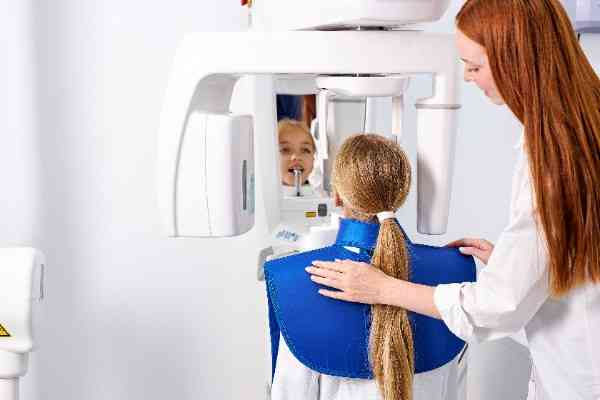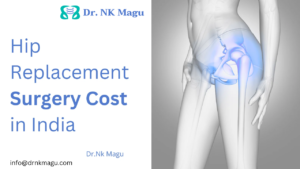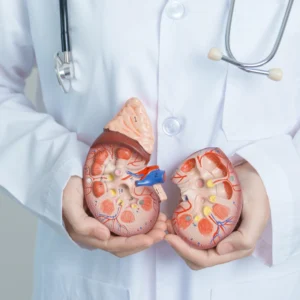Hygiene for Braces Wearers — What You Need to Know in Hartlepool
Braces are a fantastic solution for straightening your teeth and perfecting your smile, but they also require extra care when...

Braces are a fantastic solution for straightening your teeth and perfecting your smile, but they also require extra care when it comes to oral hygiene. If you’re wearing braces in Hartlepool, it’s vital to adapt your daily routine to keep your teeth, gums, and brackets clean and healthy.
Braces can trap food and plaque in hard-to-reach places, increasing your risk of tooth decay, gum inflammation, and even unplanned visits to an emergency dentist in Hartlepool. Whether you’re just beginning your orthodontic treatment or are already months in, understanding proper hygiene is key. This guide offers practical advice to help you maintain great oral health and get the most out of your braces journey.

Why Hygiene Matters More with Braces
Braces don’t cause cavities, but they do make cleaning more difficult. Wires and brackets can trap food, which, if not cleaned properly, leads to:
- Tooth Decay: Sugar + bacteria = acid, which damages enamel.
- Gum Inflammation: Bacteria build-up irritated gum tissue.
- White Spot Lesions: Early stages of enamel demineralisation.
- Bad Breath: Trapped food and bacteria can cause lingering odours.
Regular visits to a hygienist in Hartlepool can help detect these issues early and offer tailored cleaning advice.
The Basics of Braces Hygiene: A Daily Routine
Establishing a solid daily routine is non-negotiable. Here’s a practical hygiene checklist:
| Time of Day | Action | Products Needed |
| Morning | Brush thoroughly (2 mins), floss | Ortho toothbrush, interdental brushes, fluoride toothpaste |
| After meals | Rinse mouth or brush if needed | Water or travel toothbrush |
| Evening | Repeat morning steps + mouthwash | Mouthwash (alcohol-free, fluoride-based) |
| Weekly | Inspect brackets and wires | Small mirror, dental picks |
How to Brush with Braces — The Right Way
Brushing with braces isn’t about brushing harder but smarter. Follow the 45° angle rule:
- Tilt your brush at a 45° angle toward the gumline.
- Use small circular motions — not aggressive scrubbing.
- Brush above, below, and directly on the brackets.
- Take your time — at least 2–3 minutes is ideal.
Use a soft-bristled orthodontic toothbrush or an electric toothbrush with a small head. These get into awkward angles better and are gentle on your enamel.
Flossing: Yes, You Still Have to Do It
Flossing is harder with braces, but it’s not impossible. Here’s how to make it easier:
- Use floss threaders to loop under wires.
- Try orthodontic floss designed specifically for braces.
- Consider water flossers, which use a pressurised steam to remove debris and are highly effective for braces wearers.
Skipping flossing can allow plaque to harden into tartar — something only a professional hygienist in Hartlepool can remove.
Interdental Brushes — A Braces Wearer’s Best Friend
These tiny brushes clean between the wires and around brackets, where regular toothbrushes can’t reach.
- Use them after every meal to dislodge food.
- Replace when the bristles start to splay.
- Gently insert between teeth and around brackets without forcing.
Foods to Avoid (or Be Extra Careful With)
What you eat impacts your oral health, especially with braces. Some foods can damage brackets or stick around longer than they should.
Avoid these completely:
- Sticky sweets (e.g. toffee, caramel)
- Hard items (e.g. nuts, popcorn kernels, boiled sweets)
- Chewing gum
Eat these with caution (cut into smaller pieces):
- Apples
- Carrots
- Crusty bread
- Pizza crust
| Food Type | Recommendation |
| Chewy | Avoid |
| Crunchy | Cut into small pieces |
| Sugary | Rinse or brush after consumption |
| Sticky | Completely avoid |
Common Hygiene Mistakes with Braces
Even the most diligent patients can make errors. Watch out for:
- Brushing too hard: Causes gum recession and damages enamel.
- Skipping flossing: Leads to build-up and decay.
- Using whitening products: Causes uneven colour when braces come off.
- Neglecting regular check-ups: Hygiene appointments and dental reviews are still necessary!
When to Call an Emergency Dentist in Hartlepool
Sometimes, hygiene neglect or accidents can lead to emergency dental needs. Call an emergency dentist in Hartlepool if you experience:
- A broken bracket or wire
- Severe gum swelling or bleeding
- Unusual white spots or lesions
- Intense, persistent tooth pain
Timely action prevents further complications and protects your treatment progress.
How a Hygienist in Hartlepool Can Help
A hygienist in Hartlepool plays a vital role in your orthodontic care by:
- Professionally cleaning areas you can’t reach
- Providing fluoride treatments to strengthen enamel
- Educating you on brushing and flossing techniques
- Monitoring gum health and plaque levels
Even if you’re confident in your routine, a hygienist can spot things you’ve missed.
Braces Hygiene for Children and Teens
For younger wearers, parental support is key:
- Supervise brushing until they’re confident with techniques.
- Use plaque disclosing tablets occasionally to highlight missed areas.
- Consider reward charts for motivation.
If your child complains of discomfort or shows reluctance to clean properly, book them in with a hygienist for gentle, professional guidance.
Braces-Friendly Oral Care Products
Here’s a quick shopping list of braces-safe hygiene essentials:
| Product Type | Recommendation |
| Toothbrush | Ortho-specific soft-bristled brush |
| Floss | Threaders or super floss |
| Interdental Brushes | TePe or Curaprox |
| Mouthwash | Alcohol-free, fluoride-based |
| Wax | Orthodontic wax for poking wires |
| Mirror | For inspecting hard-to-see areas |
How Often Should You See a Hygienist During Orthodontic Treatment?

Regular check-ups with a hygienist in Hartlepool are essential when wearing braces. Most patients benefit from seeing a hygienist every 3 to 4 months, rather than the standard 6-month interval. These appointments allow for:
- Professional plaque and tartar removal
- Early detection of gum issues
- Tailored hygiene advice as your treatment progresses
Frequent visits help maintain oral health and reduce the chance of developing white spots or inflammation around the brackets.
Post-Braces Hygiene: What Happens After the Brackets Come Off?
Getting your braces off is exciting, but the hygiene journey doesn’t end there. After removal:
- You may need a professional clean to remove adhesive residue.
- Retainers (removable or fixed) require just as much cleaning attention.
- Whitening treatments might be an option once your enamel has recovered.
Book a visit with your hygienist in Hartlepool to assess your post-braces condition and plan a smile-brightening routine.
Conclusion : Healthy Braces Mean a Healthier Smile
Braces are a long-term investment in your smile—but without proper hygiene, straight teeth can still become stained, decayed, or unhealthy. Brush effectively, floss daily, choose braces-friendly foods, and don’t skip routine check-ups. If you notice discomfort, irritation, or signs of trouble, contact a hygienist in Hartlepool or an emergency dentist in Hartlepool for prompt care. At EDA Group, we’re committed to helping you achieve a healthier, brighter smile throughout your orthodontic journey. Let’s keep that future smile shining its best!





